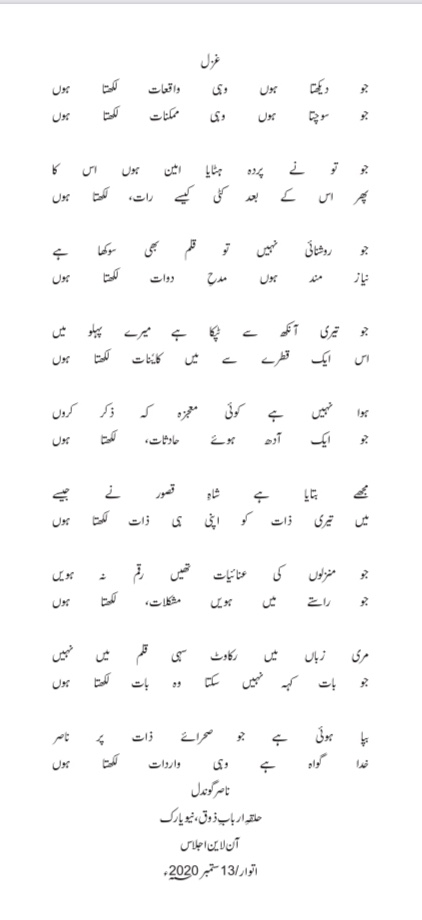Ajay is gone and I could not say good-bye.
I lost a dear friend this past week. The news I dreaded for
a while but did not want to hear arrived by text from Shankar Sadhwani on November
20th, Saturday morning.
Ajay was my first non-Pakistani friend. He was the first
person I called friend in the United States.
It was June of 1989 and we were having our orientation for residency
in Flushing Hospital in Queens NY due to start next week. We had submitted our
requests for the holidays for the year to come. Ajay approached me and asked if
we can exchange the vacation slots. He wanted the second half of March 1990 and
I had already asked for that. Why? I asked. He had to go to back home to get
married. I told I had exactly the same plan. He laughed and said that in that case,
he will not ask at all. That was our introduction.
We were all foreign graduates, including the few Americans amongst
ourselves. We were from all over: Eastern Europe to South America, Middle East
to South Asia to the Far East. We had a sort of United Nations of our own. I
bonded the most with Ajay Lodha and Ashok Sharma.
He was a few years younger than me. He had wasted no time after
graduation to be in residency program, somewhat unusual for a foreign graduate in
those times. He had an advantage. His parents were here and he was exposed to
the system here. In the pre internet era, it was a huge advantage.
He was a happy man with an innocent smile. We ended up
sharing a lot of work. We were on calls
together. Our first year was the one before the Bell Commission’s rules. We had
many 36 hours calls together. We learned together how to endure. Finding difficult iv accesses, drawing bloods,
ABG’s and all the skut work. We learnt together how to transition from our British
based MBBS’s to American system. We became
friends. We hung out together. We hailed from diagonally opposite traditions. He
was a Rajasthani Jain, a strict vegetarian, and I was a Punjabi from Pakistan. But
there were more things in common between us than what separated us.
Over time, we both got married, and had kids. I moved out of
Flushing but we stayed close. We attended
each other kid’s events, and family gatherings. He attended my father’s
funeral. With time our social lives drifted apart but we remained close to each
other at work. I cam back to central Queens and we kept on seeing each other
and sharing patients.
Ajay was always ahead of his time. He was first to start
moonlighting and first to start practice. He helped me almost in all steps of my
professional life. He found me a place to start moonlighting in The Parkway
Hospital where he was already working, while I was a fellow in training. Later
when I was to join a Heme Onc practice in Forest Hills, he put in good word for
me to my prospective employer. I am still working in that place. He had nothing
to gain in helping me out. He was primary care and I a specialist. Everyone
knows who runs the show in private practice.
Apart from my immediate family there are very few in life
whom I own a lot and who owe me nothing. Ajay is one of them.
Out of our Class of 92, Flushing, he was perhaps the most
successful person. He built his practice from scratch, expanded it and branched
out. He was active in Indian American physicians, ultimately becoming the
president of AAPI; and much more, which I am not privy of.
He was always in a hurry, he had to be somewhere, he always had
his eye on something ahead. That was his strength. But once in a while, when we
spend some time, and relaxed, we always reminisced the good times we had together.
It is my misfortune that I did not have the chance to speak
to him since he fell ill. By the time I knew, he was beyond my reach. I texted
him on April 9th, “Ajay, I hope you seen this message soon and be
healthy, Just today I heard you were sick. And tried to call you. Then I found
out you had been transferred. It is a big service and a price to pay in our profession.
Wishing for a speedy recovery, I know you can do it. “. I was hoping he
would get it, but by that time he was unreachable. I kept on communicating
through Sanjay but with time, I realized it is an additional uncalled burden on
him.
After so many months of hearing about him third and fourth hand,
one day I thought I should try to communicate directly, and texted him the
following on Friday the 20th November, “Ajay, I have been
thinking of contacting you but don’t know if you are willing to communicate. I don’t
want to cross any lines. I want to tell you that I think of you almost daily
and wish the best for you. Huded and I talk about you all the times. Wish you
well and whenever you feel like it you can contact me. I am a click away. And
if I don’t hear back at all, I will understand that too.”
And the next day I got a text from Shankar Sadhwani.
Ajay, you have paid the ultimate price for the path you
took. And you fought well. Rest is peace my friend.
In gratitude
Nasir Gondal
Tuesday, November 24, 2020





